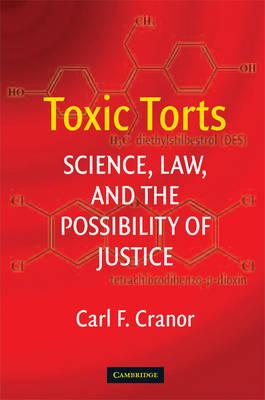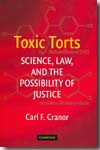Toxic Torts
science, Law, and the possibililty of justice
- ISBN: 9780521728409
- Editorial: Cambridge University Press
- Fecha de la edición: 2008
- Lugar de la edición: Cambridge. Reino Unido
- Encuadernación: Rústica
- Medidas: 24 cm
- Nº Pág.: 416
- Idiomas: Inglés

The relationship between science, law and justice has become a pressing issue with recent U.S. Supreme Court decisions beginning with Daubert v. Merrell-Dow Pharmaceutical. How courts review scientific testimony and its foundation before trial can substantially affect the possibility of justice for persons wrongfully injured by exposure to toxic substances. If courts do not review scientific testimony, they will deny one of the parties the possibility of justice. Even if courts review evidence well, the fact and perception of greater judicial scrutiny increases litigation costs and attorney screening of clients. Mistaken review of scientific evidence can decrease citizen access to the law, increase unfortunate incentives for firms not to test their products, lower deterrence for wrongful conduct and harmful products, and decrease the possibility of justice for citizens injured by toxic substances. This book introduces these issues, reveals the relationships that pose problems, and shows how justice can be denied.







